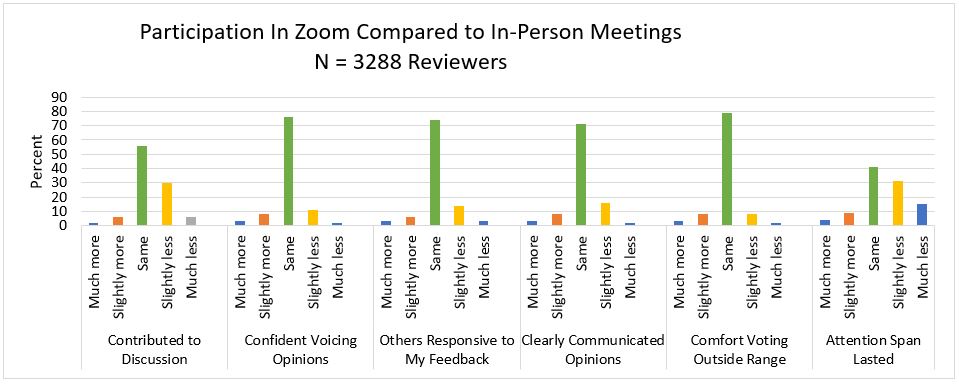☰ ATSU Navigation


AACOM is accepting applications to the 2021 - 2022 Osteopathic Health Policy Internship (OHPI) Program until Friday, January 29, 2021 at 11:59 PM EST. This unique 8-week virtual internship will give osteopathic medical students the opportunity to develop intimate knowledge of federal health care and higher education policy and make a foundational impact on public policy formulation.
Direct any questions about the OHPI program to Alexandra Tran, Policy and Regulatory Analyst, at atran@aacom.org.
Congress's reauthorization of PCORI's funding contained a new provision to ensure PCORI's work considers a full range of clinical and patient-centered outcomes that meet the needs of patients, clinicians, purchasers, and policy makers. PCORI drafted a set of 4 principles to inform how it will implement this new provision:
The 60-day public comment period for the draft principles closed November 13. PCORI will analyze all input received, revise as needed, and finalize the draft principles for consideration by the Board of Governors early next year.
Sponsored Programs (SP) routinely covers webinars on a wide range of topics tied to ATSU's strategic priorities and is happy to share key takeaways. Summaries of these webinars are available from SP staff upon request (pds@atsu.edu).
| Date | Organization | Webinar |
|---|---|---|
| September 16 | US Department of Health and Human Services | "The New Normal: Tips to Make Telemedicine Part of Your Permanent Practice" |
| September 24 | National Academy of Medicine (NAM) Leadership Consortium | "American Healthcare after COVID-19: Transforming the System Sector by Sector" |
| October 1 | Arizona Telemedicine Program (ATP) | 2nd Annual Arizona Telemedicine Policy Symposium |
| October 7 | ATSU National Primary Care Week |
"Shifting the Paradigm: A Factual and Anecdotal Approach to Normalizing Telehealth in Primary Care" |
| October 15 | Health Information Technology Training and Technical Assistance Center ( |
"Telehealth Considerations and Strategies for Special and Vulnerable Populations" |
| October 21 | Primary Care Collaborative (PCC) | "Making the Call on the Best Use of Telehealth in Primary Care" |
NIH News
In response to the COVID-19 pandemic, the NIH Center for Scientific Review (CSR) has held 90% of all review meetings via a virtual platform (Zoom).
To plan future review meetings, CSR surveyed 3,000 NIH reviewers and support staff and compiled ratings by scientific review officers (SRO) of 230 review meetings and quantitative data comparing in-person v. Zoom instances of 275+ meetings.
Though 60% of reviewers and 85% of SROs stated overall quality has not changed, more respondents prefer in-person meetings (43% to 31% of reviewers; 44% to 36% of SROs). Reasons for this preference include longer meetings via Zoom, reduced attention, lower engagement, poorer quality discussions, and lack of social opportunities (networking, building collaborations, comraderie). More details of the analyses are available here.

In February and March 2021, CSR plans to collect additional data to set post-pandemic practices for study section meetings. Stay tuned!
NIH released a Final NIH Policy for Data Management and Sharing (link), which represents the agency’s continued commitment to share and make broadly available the results of publicly funded biomedical research.
The final policy applies to all research funded or conducted by NIH that results in the generation of scientific data. The Final Policy has 2 main requirements:
There is a 2-year implementation period. NIH is asking for Plans at the time of application.
The RePORT site is now easier, simpler, and quicker to use. For example, right from the homepage, you can jump into data with interactive charts that connect to NIH Data Book, RePORTER, and other resources.

NIH RePORTER has many new features, too, including:
The newly redesigned eRA Commons log-in and landing screens will be released in January 2021.
The login screen has been simplified to remove much of the non-essential text. Key resources for institutions new to eRA Commons are now central on the screen. Links to web pages on using eRA systems are presented as large buttons for Applicants, Grantees and Reviewers.
The landing page has been redesigned to provide quick access to the most commonly used modules: Status, ASSIST, Personal Profile, and Account Management (formally the Admin tab) via large buttons along the left side of the screen. Navigation to other parts of eRA Commons will now available through the apps icon, a 9-square icon located in the upper left corner of the screen.